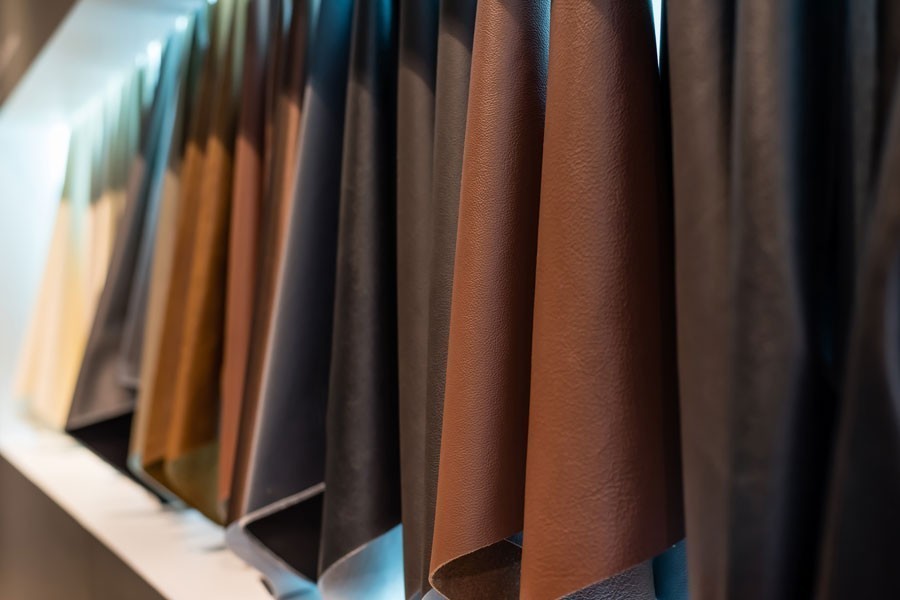Apart from encouraging environment-friendly manufacturing practices in the leather industry, the sector needs to focus on better branding and marketing of leather products for its sustainability.
The suggestion came at a virtual workshop on 'Trade and Investment Opportunities in Bangladesh Leather Industry', organised by Solidaridad in collaboration with the Embassy of Bangladesh in the Netherlands on Tuesday.
The speakers at the event also called for establishing a knowledge and innovation lab for the leather industry, in order to diversify and manufacture high-end products in line with ever-changing demand of the global market.
Solidaridad Asia General Manager (Pollution Management in MSMEs) Tatheer Zaidi presented a keynote on 'Issues/challenges prevailing in the export-oriented leather industry of Bangladesh' at the event, presided over by Solidaridad Bangladesh Country Manager Selim Reza Hasan.
In the introductory remark, Bangladesh Ambassador in the Netherlands Riaz Hamidullah said for sustainability of the leather industry, the key challenges regarding exports to the Netherlands and other European countries should be identified first.
He said issues like environment-friendly production, carbon neutrality and the efficient use of water in the leather industry should be discussed more among the stakeholders, in order to increase export volume to European countries.
"Why is the conversation regarding the leather industry limited to effluent treatment only? It should be discussed in Dhaka among the industry owners and relevant ministries … we should discuss more about understanding the global trend to increase leather export," he said.
Stressing the need for establishing a leather innovation lab, the ambassador said it was true that there were many challenges but these could be overcome through research and innovation, technology transfer, and appropriate strategies.
Suggesting five points for sustainability of the leather industry, APEX Footwear Ltd Managing Director Syed Nasim Manzur said technical experts from the Netherlands, having proven industry experience in effluent management and treatment, should be identified and selected for better waste management in the country's leather industry.
"We don't have such expertise in the country; we have professors with academic knowledge and bureaucrats who don't have necessary technical skills. So, we need people with specific knowledge to run effluent treatment plants," he said.
Second, with the help of Solidaridad, Bangladesh needs to engage in campaigns both locally and globally for better marketing of the leather industry, he said, adding: "We are hopeless at marketing ourselves while there are countries with much worse pollution standards than us but they get away with better marketing."
Putting emphasis on formulating culturally sensitive global standards for the leather industry, Mr Manzur said it was not possible for Bangladeshi workers to wear personal protective equipment (PPE) like the workers in Germany or other European countries, as temperature and humidity inside the factory shed were much higher here.
Besides, the Leather Working Group (LWG) certification for the leather industry is just one standard while there are some other standards now in which Bangladesh can show its progress, he added.
Referring to some of the world's biggest re-importers and distributors of footwear from the Netherlands, Mr Manzur said: "None of them have presence in Bangladesh or have buying offices; if partnership can be done, they can help companies here to go global through establishing brands apart from just trading."
In the presentation, Solidaridad Asia General Manager Tatheer Zaidi said around 200-220 million sq ft of leather was produced every year in the country, grabbing around 3.0 per cent share in the global leather and leather goods market.
Bangladesh exports about 50 types of leather and leather goods to nearly 80 countries and regions to fetch about US$1.0 billion that has made the sector 2nd largest foreign currency earner.
The country is the 8th largest producer of footwear with over $3.0 billion worth of domestic market for leather products, he said, adding that there were about 134 tanneries operational in the country employing over 200,000 people directly and around 850,000 indirectly.
Meanwhile, Bangladesh Tanners Association (BTA) Chairman Shaheen Ahamed said it had been a challenge to carry out solid waste management at Savar Tannery Industrial Estate due to non-availability of a dumping station.
The estate produces around 70 tonnes of solid waste per day which needs to be managed in an environment-friendly way to improve the image of the industry, he said.
Besides, mentioning that the tanneries in Savar use ground water only, Leather goods and Footwear Manufacturers & Exporters Association of Bangladesh (LFMEAB) President Md Saiful Islam said Bangladesh could make a partnership with the Netherlands to introduce the technology of using surface water at an affordable cost.
Bangladesh Small and Cottage Industries Corporation (BSCIC) Chairman Mustaque Hassan, Commerce Ministry Additional Secretary (DG WTO cell) Md Hafizur Rahman, former additional secretary (planning and development) of the industries ministry Md Golam Yahia, and Solidaridad Europe Managing Director Heske Verburg, among others, spoke at the programme.
Dr Mohidus Samad Khan, associate professor of chemical engineering department at the Bangladesh University of Engineering Technology (BUET), moderated the discussion.


